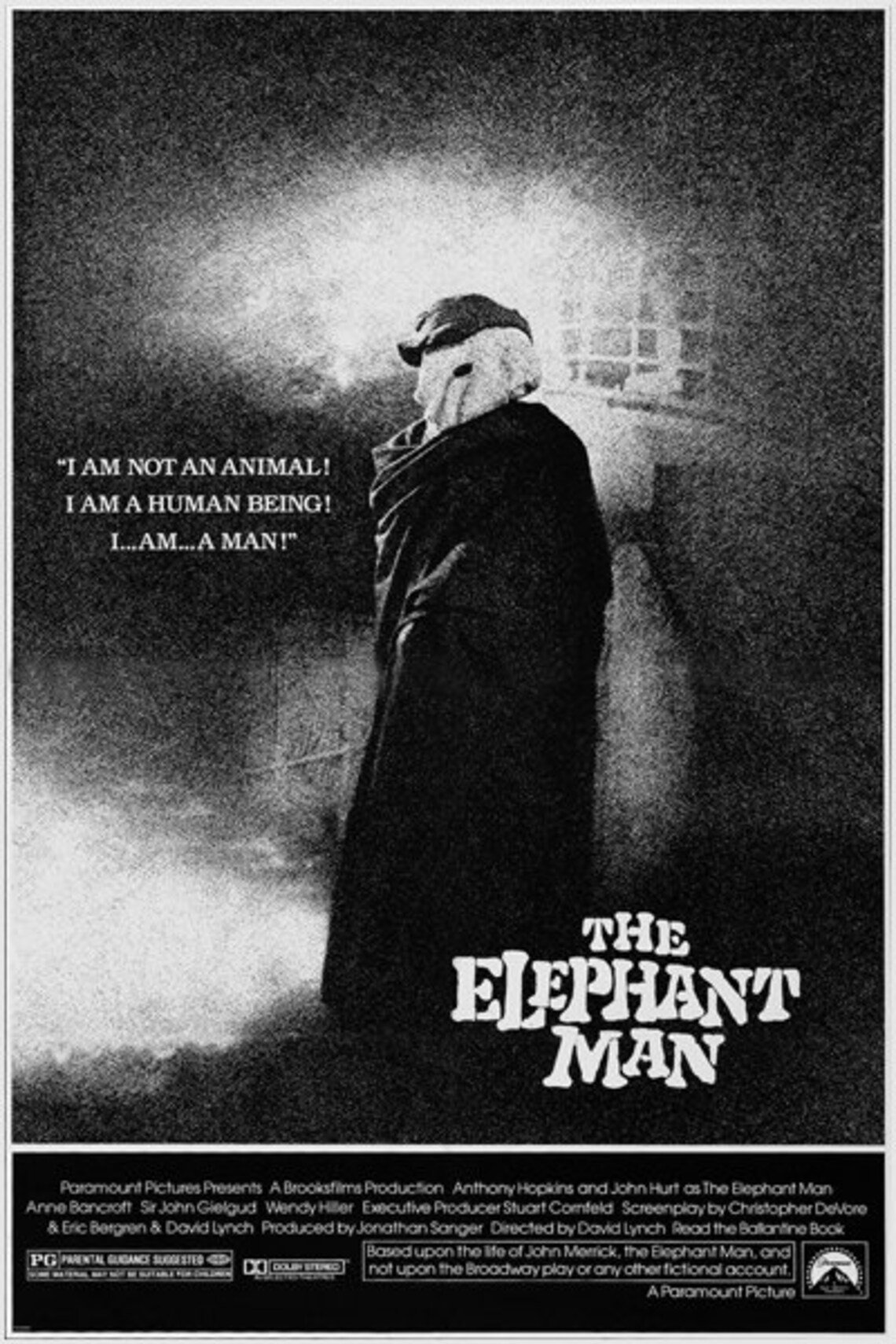Dish of the Day
Just some film musings of a more succinct, spontaneous and sometimes seditious nature:
Thursday, March 30, 2023
Today’s “Dish of the Day” has a brief review of mine that was inspired by a post in one of the film related Facebook chat rooms. This includes the Cinema Cafe group (all readers are encouraged to join here: https://www.facebook.com/groups/902349343110685).
The Elephant Man (1980)
David Lynch's occasional stylistic flourishes of nightmarish abstraction, so effectively employed throughout the surrealistically pervasive Eraserhead (1977), clash with his straight and narrow story’s main concern: the extreme disfigurement of John (in reality Joseph) Merrick along with its overriding reminders of just how unfortunate and cruel an individual's circumstances can become. The director even goes so far as to begin his film with impressionistic images and sounds of Merrick’s mother being frightened by a herd of elephants, one who throws her to the ground drawing some vague correlation between the two species and the birth of John and, at the end, more symbolic references to Merrick and the stars as if the man was some kind of deity.
True, the film’s depiction of Merrick’s courage in facing a life of unbearable hardship is commendable, however, the lack of comprehension as to how he became a cultured and gentle soul (or any other influence that might have shaped his personality) in the midst of such overwhelming adversity, is not. The film’s impressive production values (i.e. Freddie Francis’ black and white cinematography, Anne V. Coates’ editing and John Morris’ music) and earnest performances cannot compensate for the thinly drawn characters and woefully sentimentalised encounters they find themselves in. Everyone is painted as either saint or swine. Merrick’s doctor (a surgeon really, although there’s nothing he can do in that capacity to help his patient), played by Anthony Hopkins, gives lectures on Merrick’s deformities that not only tell us nothing about how they might have occurred, he fails to even speculate on the matter. This absence, along with the exhibition of Merrick to colleagues, makes his role (sans the cruelty along with the upgraded, but still clinical, surroundings) not all that different from the freak show proprietor played by Freddie Jones. The doctor’s relationship with Merrick which could have been explored in a far more perceptive fashion (like those between the extremely disadvantaged and their carers seen in The Miracle Worker or The Wild Child) is instead pretty much reduced to one of victim and rescuer. Aside from the instantly identifiable good or bad behavioural traits, this story, told in such schematic terms, fails to communicate any insight or emotion unrelated to pity. I would ask those impressed by The Elephant Man how easily their feelings can be aroused by subject matter alone. And if that capability is the benchmark for determining a work's value (or perhaps on a deeper level the worth of such an individual) what's left for the discerning viewer looking for a percipient storytelling experience (or the person who, against all odds, is still searching for a greater sense of purpose in life)? *
* I find it quite fascinating that film critic Roger Ebert, who made similar criticisms about The Elephant Man to mine (one can read his review here) also suffered from physical disfigurement later in life (although the latter was less severe than what Merrick endured) but had the fortitude and inspiration to explore what a meaningful life was about in his 2011 book titled: “Life Itself: A Memoir”. This was later made into a 2014 documentary.
"To make ourselves unhappy is where all crime starts. We must try to contribute joy to the world. That is true no matter what our problems, our health, our circumstances. We must try. I didn't always know this, and am happy I lived long enough to find it out." — Roger Ebert (June 18, 1942 - April 4, 2013) R.I.P.
All responses are not only welcomed but encouraged in the comments section below.
Hope to see you tomorrow.
A.G.
